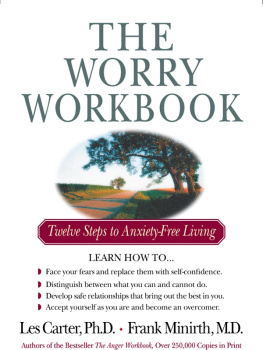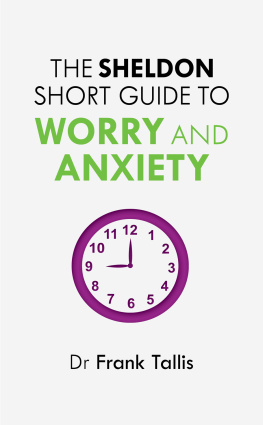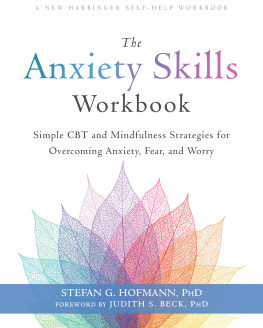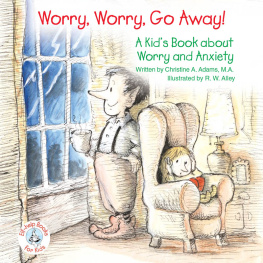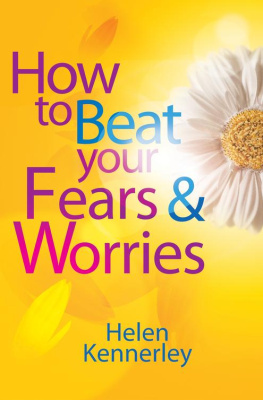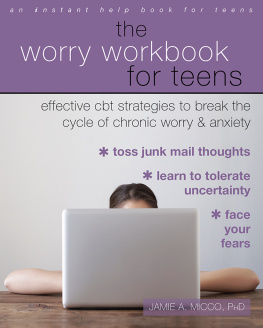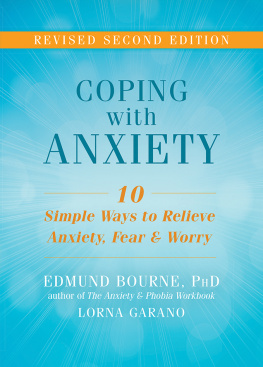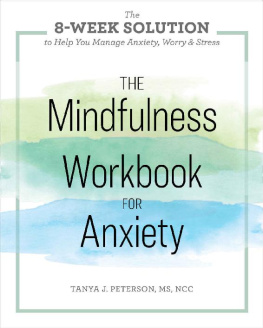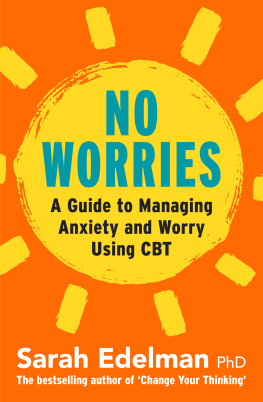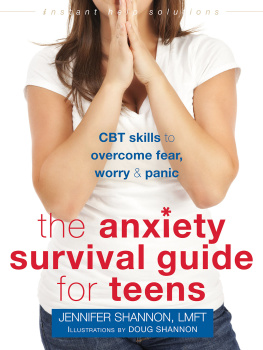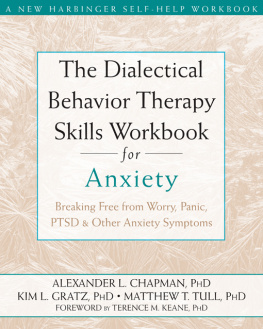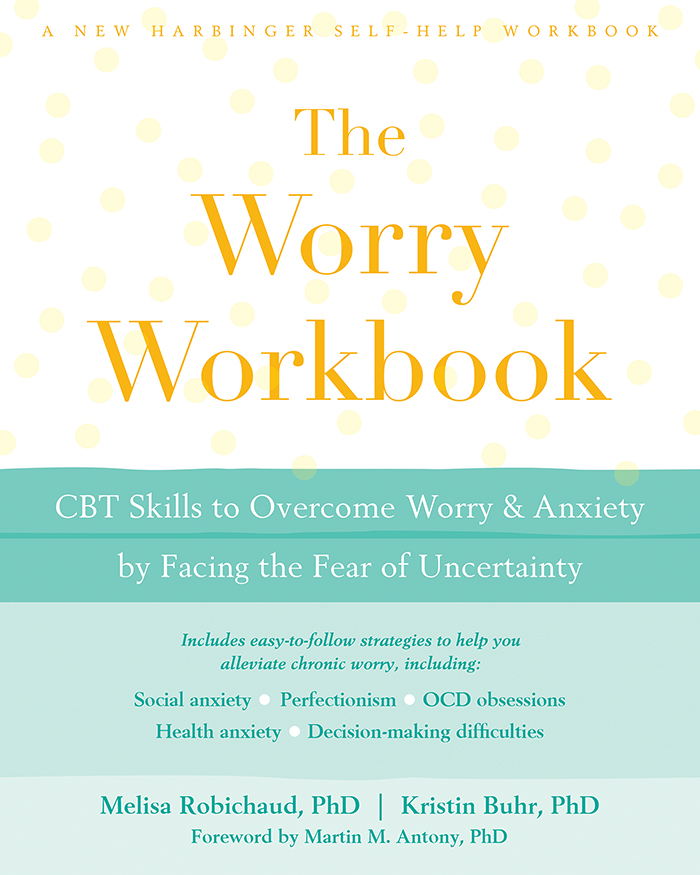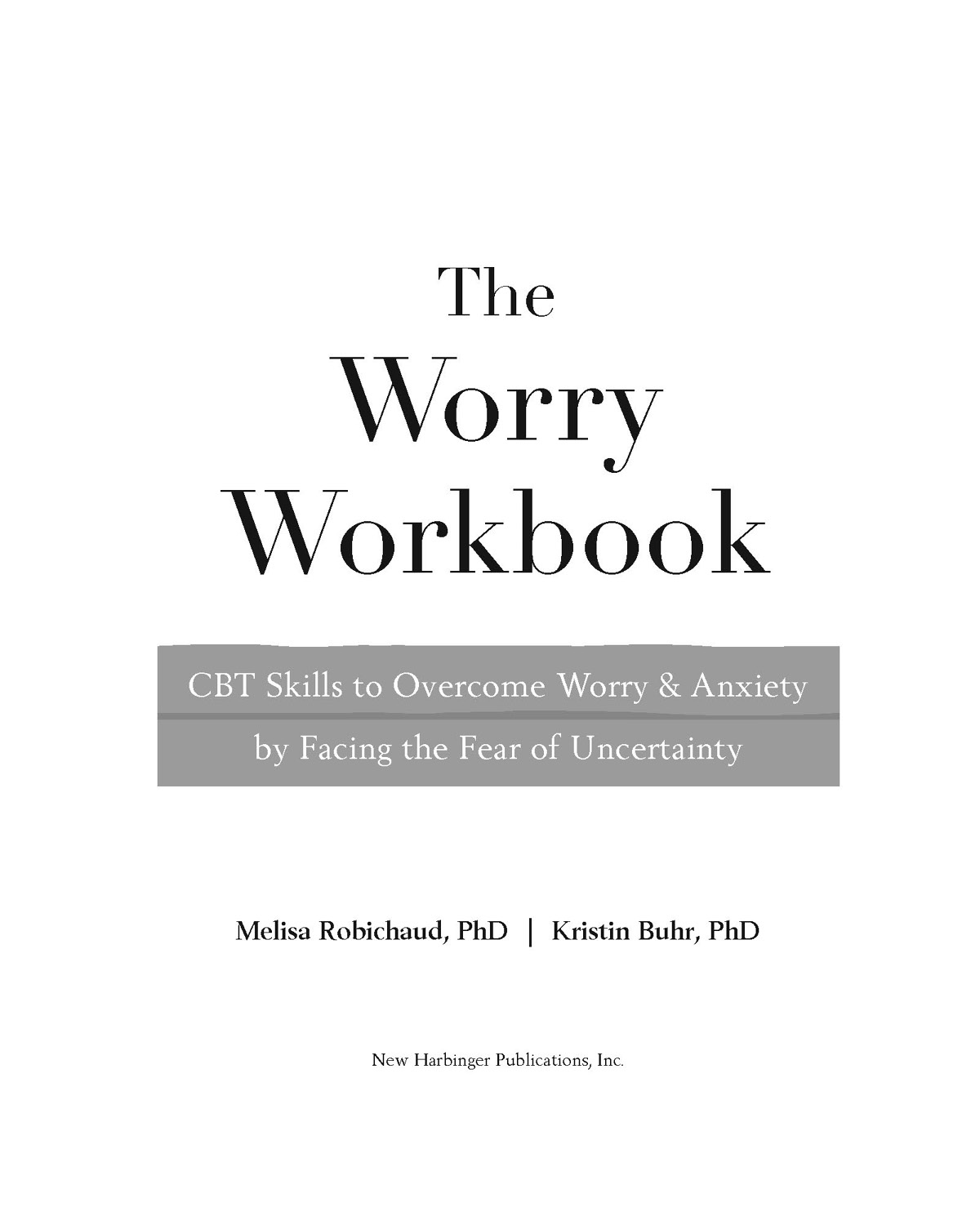This book will be a truly helpful resource for those who struggle with worry. Written by two seasoned experts on the topic in clear and practical terms, The Worry Workbook will guide you through a series of therapeutic exercises based in the latest theory and science of worry and anxiety. It is a book for doing, rather than just for reading; but its one that promises to provide relief from worry and anxiety to those who need it most.
Adam S. Radomsky, PhD , professor of psychology at Concordia University, and editor of Journal of Behavior Therapy and Experimental Psychiatry
Most people worry from time to time. But for some, worry is a constant companion. It makes mountains out of molehills. It screams catastrophe! where others seem to brush things off. It turns simple matters into agonizing predicaments, keeps you up at night when others are soundly asleep, and turns a relaxing day into knotted muscles. But is does not have to be this way. Robichaud and Buhr take decades of the leading research and clinical insights, and present them in a clear, easy-to-understand program to help you understand and overcome your anxiety. Dont worry!
Peter Norton, PhD , professor of clinical psychology at Monash University in Australia, and director of the Monash FEAR Clinic
Why do some people worry more than others? In this book, Melisa Robichaud and Kristin Buhr present a clear and simple explanation of worry. Their theory is based on twenty-five years of research on worry, anxiety, and intolerance of uncertainty. To my knowledge, this is the first self-help book to systematically address the relationships between uncertainty, perfectionism, and problem solving, and to do so without referring to a particular mental health problem. Moreover, Robichaud and Buhr present well-defined and concrete self-help strategies that are closely tied to recent theories of learning. By pointing out the key role of safety behaviors in worry, they have really hit the nail on the head. If you are someone who struggles with worry, it is almost impossible that you will not benefit from the countless examples of self-help strategies listed in this book.
Michel Dugas, PhD , clinical psychologist and professor of psychology at the Universit du Qubec en Outaouais
Drawn from strong scientific foundations, The Worry Workbook is a straightforward yet compelling tool for those suffering with worry and chronic anxiety. In prescribing experiments that paradoxically embrace uncertainty, Robichaud and Buhr provide a blueprint towards combating safety behaviors and promoting a fuller and more enriching life despite unpredictability in the world.
Douglas Mennin, PhD , professor in the department of counseling and clinical psychology at Teachers College, Columbia University
The Worry Workbook is superb! Whether you wrestle with worry episodically or are gripped with intense and frequent anxiety, this book will help you identify and change the core beliefs and fundamental behaviors that reinforce and intensify worry and anxiety. Robichaud and Buhr provide an outstanding and practical step-by-step guide to understanding and overcoming worry, utilizing scientifically proven techniques and strategies. The workbook is reader-friendly, highly engaging, and easy to understand and usethe techniques presented in this book could dramatically change your life. I will recommend this book to my clients, and to students and professionals.
David J. A. Dozois, PhD , professor and director of the clinical psychology graduate program in the department of psychology at University of Western Ontario
Finally! A self-help book targeting intolerance of uncertainty as a central focus. Melisa Robichaud and Kristin Buhr have written a comprehensive guide for managing problematic worry of any type or intensity. Throughout the book, the reader will find: information that is educational and corrective of myths; self-monitoring exercises to increase awareness of triggers and problematic patterns of thinking and acting; self-assessments to identify ones worry fingerprint, idiosyncratic areas of tolerance of uncertainty, safety behaviors, etc.; and sample behavior experiments for targeting different worry types, perfectionism worries, decision-making, and disorder-specific worries. After reading it, I am certain that it will quickly become a go-to resource for worriers and the professionals who treat them.
Simon A. Rego, PsyD, ABPP , chief psychologist at Montefiore Medical Center, and associate professor of psychiatry and behavioral sciences at Albert Einstein College of Medicine in New York, NY
Publishers Note
This publication is designed to provide accurate and authoritative information in regard to the subject matter covered. It is sold with the understanding that the publisher is not engaged in rendering psychological, financial, legal, or other professional services. If expert assistance or counseling is needed, the services of a competent professional should be sought.
Distributed in Canada by Raincoast Books
Copyright 2018 by Melisa Robichaud and Kristin Buhr
New Harbinger Publications, Inc.
5674 Shattuck Avenue
Oakland, CA 94609
www.newharbinger.com
Cover design by Amy Shoup
Edited by Cindy Nixon
All Rights Reserved
Library of Congress Cataloging-in-Publication Data on file
To my dad, Jacques Robichaud
M. R.
For Dan and Logan
K. B.
Contents
Foreword
by Martin M. Antony, PhD
Do you often find yourself wondering, How can I possibly get all of my work done? There are not enough hours in the day! or How can I make sure that my children are safe when the world is such a dangerous place? Do you find yourself predicting that catastrophe is around the cornerfor example, Im going to fail my exam! or I will make a fool of myself if I speak up in meetings ? Do you ruminate about how to solve potential problems even before they happen? These are the sorts of experiences that are common when we worry.
We all worryits a normal part of life. At the same time, worry can be a problem if it happens too frequently or too intensely. Intense worry is associated with a fear of uncertainty, which many experts believe is at the core of the problem. Worry may also lead us to engage in behaviors that contribute to the problem over the long term, such as avoiding situations and experiences that trigger worry or relying too much on behaviors that make us feel safe. For example, if you worry excessively about what others think about you, you may avoid social situations or use safety behaviors (such as having a few glasses of wine or avoiding eye contact) whenever you have to be around other people. In addition, excessive worry is often associated with other issues, such as perfectionism, anxiety, depressed mood, difficulty making decisions, and difficulty solving problems.
The Worry Workbook is the first workbook to focus specifically on the experience of worry and fear of uncertainty across a wide range of problems. If you worry too much about many different things, then this book is for you. Its practical, straightforward, easy to read, and well informed by the latest scientific research on the nature and treatment of excessive worry. It will help you understand where your worry comes from and what causes it to continue over time. The exercises in this book will teach you to recognize patterns of thinking and behaving that contribute to worry, including fear of uncertainty and the excessive use of safety behaviors. More importantly, you will learn strategies for changing your worry.


